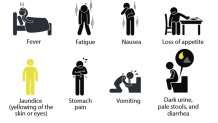San Diego County leaders extended the public health emergency for Hepatitis A for the 12th time Tuesday but said the number of cases is declining, indicating the outbreak is slowing down.
On Sept. 1, 2017, the San Diego County public health office declared a public health emergency due to the outbreak across the county. Health code requires that the County Board of Supervisors review the status of the emergency declaration every 14 days and extend it as needed. On Tuesday, the board reviewed topic and decided to continue the emergency declaration for the 12th time since it was first implemented.
Despite this recent extension, officials said it appears the hepatitis A outbreak in San Diego County is winding down.
Dean Arabatzis, of the San Diego County Health and Human Services Agency (HHSA) told the board that in the last two weeks, six new cases were reported in the county, bringing the tally to 577 cases. Of those cases, there have been 396 hospitalizations and 20 deaths.
“With that, we are earnestly continuing our vaccination efforts, with nearly 116,000 vaccinations given today,” Arabatzis said.
From May to September of last year, 84 cases of hepatitis A were reported, on average, each month in San Diego County. In November 2017 that dropped to 21 cases and in December, the figure further declined to seven cases.
Arabatzis said this “downward trend” is expected to continue as the county figures out how to transition out of the months-long health emergency.
U.S. & World
News from around the country and around the globe
"We are now shifting gears and looking to move away from this emergency state in the coming weeks," he said.
The Hepatitis A outbreak first began in November 2016. Since the emergency health declaration four months ago, officials have been offering vaccinations to the county's homeless and illicit drug users -- the populations most at-risk for contracting Hepatitis A.
New temporary homeless shelters have also opened in an effort to get locals off the streets. More public bathrooms and hand-washing stations have been made available in at-risk areas.
Arabatzis said the dwindling number of cases prove these efforts are working.
"Our strategy of vaccination, sanitation and education and the county's joint efforts with the city and other partners have been making an impact on the Hepatitis A outbreak," he added at Tuesday's board meeting.

According to the HHSA, Hepatitis A is usually spread through the fecal-oral route from person to person. Symptoms include jaundice (yellowing of the skin and eyes), fever, fatigue, loss of appetite, nausea, vomiting, abdominal park, dark urine and light-colored stools. For more details on the disease, click here.
Groups that should get the Hepatitis A vaccination include illegal drug users, people with chronic liver disease, travelers to certain countries, people with clotting disorders, homeless individuals, people who work closely with the homeless and food handlers, according to the county. Health officials say men who have sex with men should also get a Hepatitis A vaccine.
While health officials said the Hepatitis A outbreak is still of highest priority, county leaders, including supervisors Ron Roberts and Dianne Jacob, asked Arabatzis if the high volume of flu cases sweeping San Diego County might escalate into the county's next health emergency.
The topic of the flu epidemic was not on Tuesday's agenda but leaders said they would add it to next week's agenda. In anticipation of that, Jacobs asked health officials to prepare the latest stats on the flu to present to the board.
Dr. Nick Yphantides, M.D., M.H.P., of the HSSA, said the county is actively spreading awareness of the flu epidemic in San Diego.
“The reality is, we are having a much higher flu activity in our region than is typical at this time of year,” he explained. “The system has been stressed. We have had early discussions and, as of this point in time, don’t feel that there is a reason to declare a public health emergency.”
Yphantides said it’s still too early to tell if the current flu season will outpace past seasons, or if health officials are just seeing an earlier spike in cases than normal.
"Those are the kinds of things we are monitoring very closely," he added.



